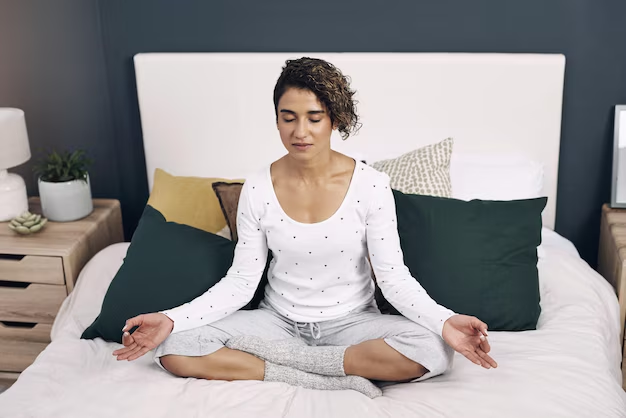Overcoming Anxiety: Practical Steps to Find Relief
Anxiety is a common emotion, often described as a state of unease, worry, or fear, which can be mild or severe, temporary or chronic. While anxiety can be normal—in the face of stress or uncertain situations—it becomes problematic when it's constant or overwhelming, interfering with daily life. Many seek to understand how to alleviate anxiety, and while each person’s response is unique, there are practical strategies that can offer relief.
Understanding Anxiety
Before diving into strategies for managing anxiety, it's important to understand what it is and how it manifests. Anxiety often involves a complex set of physical, emotional, and cognitive experiences. It can affect how a person thinks, feels, and behaves, and it can lead to physical symptoms such as increased heart rate, sweating, trembling, or fatigue.
Common Causes of Anxiety
Anxiety can stem from various factors, including:
- Stress: Continual pressure at work or in personal situations.
- Genetics: Family history of anxiety or other mental health issues.
- Trauma: Past traumatic events or abuse.
- Health Issues: Chronic illnesses, substance abuse, or hormonal changes.
- Personality: Certain personality traits, such as shyness or perfectionism.
Practical Steps to Alleviate Anxiety
Understanding the root cause can sometimes be the first step in managing anxiety. Here are several strategies to consider:
1. Mindfulness and Meditation
Mindfulness involves staying present and fully engaging with the current moment without judgment. Techniques may include deep-breathing exercises, meditation, and mindful movement like yoga. These practices can reduce stress and promote a sense of calm.
Starting with Mindfulness:
- Breathing Exercises: Focus on slow, deep breaths. Inhale deeply through the nose, hold, and exhale slowly through the mouth.
- Guided Meditation: Use apps or online resources to guide meditation practices, even just for a few minutes daily.
2. Physical Activity
Regular physical activity is a powerful way to combat anxiety. Exercise releases endorphins, which are known to improve mood and reduce stress.
Types of Exercise to Consider:
- Walking or Jogging: Cardiovascular exercises help reduce stress hormones.
- Yoga or Tai Chi: These activities combine movement with breath control and meditation.
- Strength Training: Helps in releasing anxiety-reducing hormones.
3. Healthy Lifestyle Choices
Maintaining a balanced diet, getting enough sleep, and avoiding stimulants like caffeine and nicotine can significantly impact anxiety levels.
Tips for a Healthy Lifestyle:
- Balanced Diet: Ensure adequate intake of vitamins, minerals, and omega-3 fatty acids.
- Sleep Hygiene: Establish a regular sleep schedule, create a restful environment, and limit screen time before bed.
- Hydration: Drink plenty of water throughout the day to stay hydrated.
4. Cognitive Behavioral Techniques
Cognitive-behavioral techniques focus on identifying and changing negative thought patterns. This approach helps redirect thinking to manage anxiety more effectively.
Simple CBT Strategies:
- Thought Journaling: Track anxious thoughts and challenge their validity.
- Positive Affirmations: Use positive self-talk to mitigate anxiety triggers.
- Behavioral Experiments: Test out assumptions by taking small actions to face fears.
5. Social Support
Having a strong support network is crucial in managing anxiety. Friends, family, or support groups can provide both emotional support and practical assistance.
Building a Support Network:
- Reach out: Don't hesitate to talk to friends or family about your feelings.
- Join Support Groups: Connect with others who understand what you’re going through.
Additional Tools for Managing Anxiety
In addition to lifestyle changes and cognitive strategies, several other tools can assist in managing anxiety:
1. Journaling
Writing about thoughts and feelings can offer a powerful release of built-up tension and provide insights into patterns and triggers.
2. Creative Outlets
Engage in activities like art, music, or writing to express emotions and reduce stress. Creative expression can be therapeutic and help process feelings non-verbally.
3. Time Management
Lack of time can heighten anxiety. Prioritize tasks, set achievable goals, and delegate when possible to alleviate pressure.
4. Professional Help
When anxiety becomes overwhelming and persistent, consider seeking professional help. Therapists and counselors can offer guidance and additional coping mechanisms.
Types of Professional Support:
- Therapy: Cognitive Behavioral Therapy (CBT) or other modalities.
- Counseling: Provides a safe space to discuss issues.
- Support from Health Professionals: Sometimes anxiety can have a medical basis, so consulting a health professional might be necessary.
Empowering Yourself to Manage Anxiety
Taking control of anxiety involves recognizing when it's affecting life and understanding the importance of small, manageable steps. Remember, it's not about removing anxiety entirely but learning to live with and manage it effectively. Everyone experiences anxiety differently, so patience and persistence are key.
Small Steps for Empowerment:
- Daily Practice: Incorporate mindfulness, exercise, or CBT strategies into daily routines.
- Track Progress: Note improvements and celebrate small victories.
- Stay Informed: Keep learning about anxiety and evolving strategies for management.
With careful attention to lifestyle choices, cognitive patterns, and emotional well-being, managing anxiety can become a part of daily life. Knowing when to seek help and utilizing a wide array of strategies can empower individuals to lead more balanced and fulfilling lives.
🌟 Key Takeaways to Reduce Anxiety:
- 💆 Mindfulness: Practice deep breathing and meditation daily.
- 🏃 Physical Activity: Engage in regular exercise for mood improvement.
- 🥗 Balanced Diet: Eat nutritious food and stay hydrated.
- 📝 Journaling: Write down thoughts to understand anxiety triggers.
- 👥 Support Network: Connect with friends, family, or support groups.
- 🧠 Cognitive Techniques: Challenge negative thoughts and reinforce positive ones.
- 🎨 Creative Outlets: Express feelings through art, music, or writing.
- 🛌 Sleep: Maintain a regular sleep schedule for better mental health.
These strategies can significantly reduce anxiety when tailored to individual needs, promoting a healthier, happier life. 🌿

